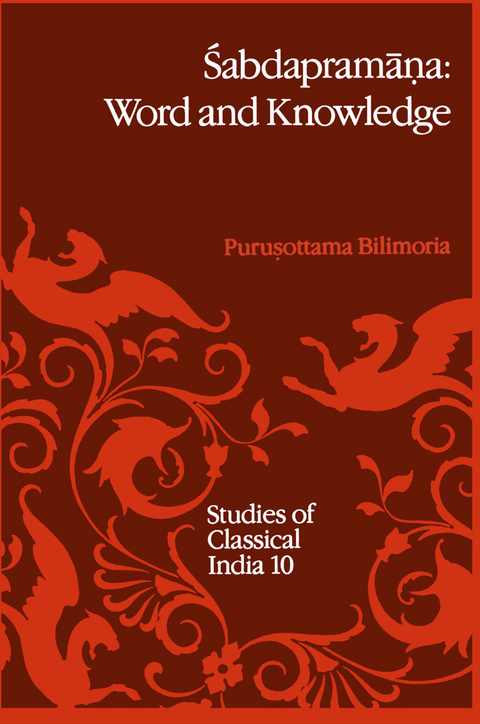
Śabdapramāṇa: Word and Knowledge
Springer (Verlag)
978-94-010-7810-8 (ISBN)
The problem.- The approach.- Aim and objectives.- The thesis and its background.- Ideality of language.- ?ruti.- The ‘dogma’ of sruti: apauru?eya.- The text and its author.- Cit: consciousness in the knowing process.- Dharmar?ja and Navya-ny?ya.- 1. Outline of the Argument for ?abdapramÅ?a.- 2. On Words.- Linguistic kara?a and the word.- 3. On Meaning.- A. Some general remarks on ‘meaning’.- B. Indian theories of ‘meaning’.- C. The linguistic functions of ‘meaning’.- 4. ??bdabodha: Psycholinguistics of Sentence Understanding.- A. ??bdabodha.- B. Sa?sargamary?d?.- 5. The K?ra?s.- A. Ák??k?? — syntactic expectancy.- B. ?satti — linguistic contiguity.- 6. The Phenomenological K?ranas.- A. Yogyat? — semantic competency.- B. T?tparya — intentionality.- 7. ?abdapr?m?nya — Problem of Truth and Authority of the Word.- A. Truth and falsity of ??bdabodha.- B. ‘Authority and Praxis’ —?ptabh?va.- Appendixes.- B. Bibliography.- A. Primary sources.- B. Secondary sources and related texts.- Indexes.- Name index.- General index.
| Reihe/Serie | Studies of Classical India ; 10 |
|---|---|
| Zusatzinfo | XVI, 384 p. |
| Verlagsort | Dordrecht |
| Sprache | englisch |
| Maße | 152 x 229 mm |
| Themenwelt | Geisteswissenschaften ► Philosophie ► Allgemeines / Lexika |
| Geisteswissenschaften ► Philosophie ► Geschichte der Philosophie | |
| Geisteswissenschaften ► Philosophie ► Östliche Philosophie | |
| Geisteswissenschaften ► Philosophie ► Philosophie der Neuzeit | |
| ISBN-10 | 94-010-7810-6 / 9401078106 |
| ISBN-13 | 978-94-010-7810-8 / 9789401078108 |
| Zustand | Neuware |
| Haben Sie eine Frage zum Produkt? |
aus dem Bereich


